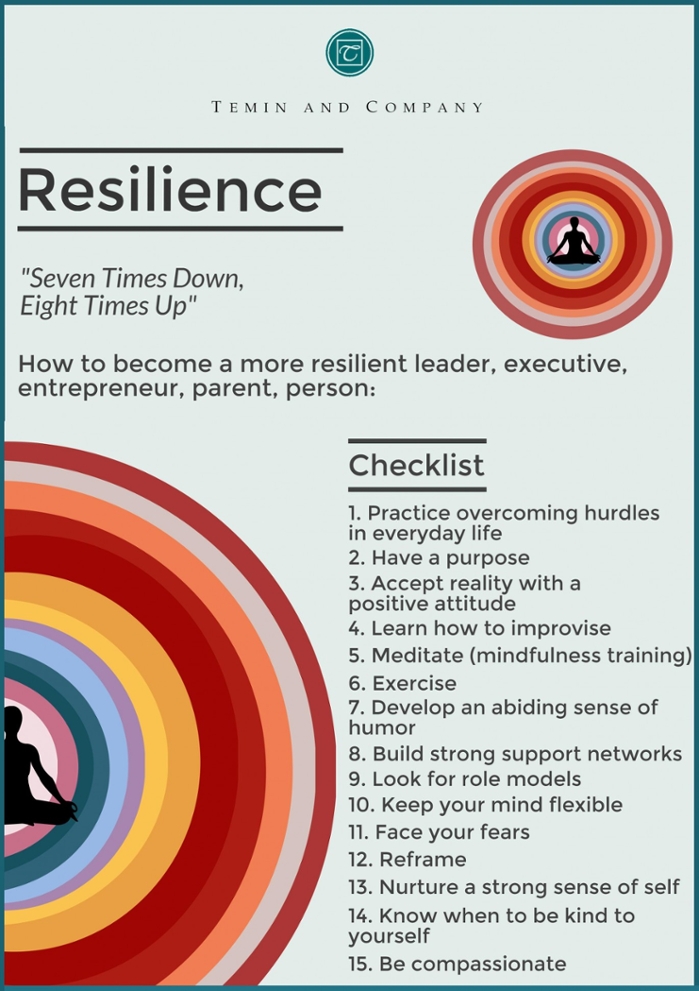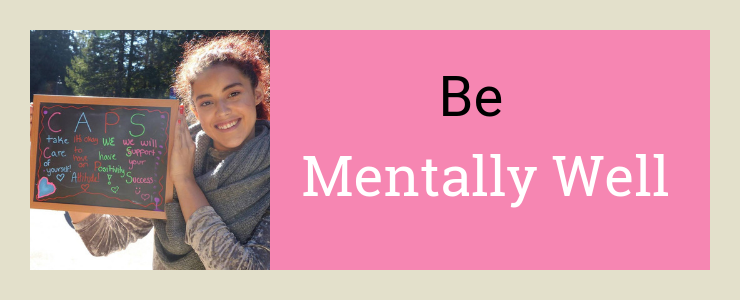Be Mentally Well
You can do a lot to care for your own mental well-being. Here are some tips and resources to help your mind thrive while on campus: handling stress, being resilient, and how to get mental health help for yourself or a student in distress.
Stress: the Good and the Bad
Everyone experiences stress. Stress can come from the outside (academic demands, family pressure, institutional systems) or from wihtin (negative self-talk, excessive worry).
Stress either helps us perform our best (motivates us to practice a skill or study for a test) or hurts our performance (keeps us up at night, or leads us to cope using alcohol or drugs).
Using Resilience to Manage Stress
After a rough day, you can bounce back from stress and start enjoying life again through resilience. What is resilience? One definition is "dealing effectively with stress." Most of you have already been resilient getting into a major university like UCSC or by successfully coping with life challenges. Stressful experiences are important parts of your growth and development.
How to Be Resilient
So how do you adapt your resilience to new situations like coming to college or confronting inevitable set-backs we all experience like failing a class, going through a difficult break-up, or not getting into your preferred major?
Like physical health, you can maintain your mental health and resilience by developing healthy mental practices and coping responses. Here are some some helpful (and free!) tools you can use when facing stress:
- The Therapist Assisted Online (TAO) tool. TAO has great self-help modules.
- One Perfect Meditation (OPM) free online meditation app for UCSC students
- Counseling and Psychology Services (CAPS) also offers Anxiety and Mood Toolboxes, drop-in opportunities like Let’s Talk and support groups in addition to many other services at CAPS.

From: New Research Helps Us Bounce Back Quicker, Better From Life's Trials And Tragedies
Mental Health Support
Counseling & Psychological Services (CAPS) services help students address their mental health concerns through:
- Brief therapy & psychiatry
- Crisis intervention
- Drop-in "Let's Talk" sessions
- Psychotherapy groups
- Workshops
- Case management
- Peer education groups
- Off-campus referrals
CAPS Self-Help Library: tons of great resources to help with
- Anxiety, stress (including academic stress), trauma
- Depression and mood
- Eating issues
- Grief and loss
- Relational issues, identity, sociocultural issues
SHOP has tips & resources about mental health for college students.
Body Image and Eating Disorders Support
If you need help developing a healthy body image or you're concerned about a friend, the Student Health Center, and CAPS can help.
Also see CAPS Self-Help library section on Eating Disorders
- Do You Have an Eating Issue?
- Eating Disorders (overview)
- Helping Yourself or a Friend with Eating Issues
- How to Help a Friend with an Eating Issue
- Self-Help Books for Eating Issues
How to Help a Student in Distress
- CAPS Crisis Care: For mental health emergencies
- Slug Support: When you're not sure how to help someone
Mental Health Resources For Black, Indigenous, And People Of Color (BIPOC)
The Mental Health Coalition is dedicated to addressing the mental health needs of BIPOC communities. Use these resources for yourself, or share them with a friend or loved one. We can all make a difference in our communities by talking about and learning about mental health.
Mental Health America resources, webinars and toolkits.
Additional Resources
- Yale's Science of Happiness course, free online
- UC Berkeley Greater Good Science Center's Science of Happiness course, free online

